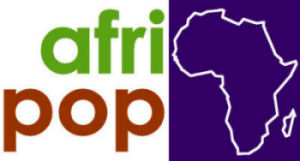The AfriPop Project
The AfriPop Project is an initiative aimed at creating detailed and accurate population distribution maps for the African continent. The project utilizes a combination of satellite imagery, census data, and advanced geospatial modeling techniques to produce high-resolution population maps. These maps are essential for various applications, including public health, urban planning, and environmental management.
Objectives[edit | edit source]
The primary objectives of the AfriPop Project are to:
- Develop high-resolution population distribution maps for Africa.
- Improve the accuracy of population data in regions with limited or outdated census information.
- Support public health initiatives by providing detailed population data for disease modeling and intervention planning.
- Aid in urban planning and infrastructure development by offering precise population density information.
- Enhance environmental management efforts by mapping human settlements and their impact on natural resources.
Methodology[edit | edit source]
The AfriPop Project employs a multi-faceted approach to achieve its objectives:
- **Satellite Imagery**: High-resolution satellite images are used to identify human settlements and land use patterns.
- **Census Data**: National and regional census data are integrated to provide baseline population figures.
- **Geospatial Modeling**: Advanced geospatial techniques, including machine learning algorithms, are applied to refine population estimates and distribute them across the landscape.
- **Ground Truthing**: Field surveys and local data collection efforts are conducted to validate and improve the accuracy of the maps.
Applications[edit | edit source]
The population maps produced by the AfriPop Project have numerous applications:
- **Public Health**: Detailed population data are crucial for modeling the spread of infectious diseases, planning vaccination campaigns, and allocating healthcare resources.
- **Urban Planning**: Accurate population distribution maps assist in the design and development of urban infrastructure, including transportation networks, housing, and public services.
- **Environmental Management**: Understanding the distribution of human populations helps in assessing the impact of human activities on natural resources and ecosystems.
- **Disaster Response**: Population maps are vital for planning and executing emergency response efforts during natural disasters, such as floods, earthquakes, and droughts.
Collaborations[edit | edit source]
The AfriPop Project collaborates with various organizations and institutions to enhance its data collection and modeling efforts. Key collaborators include:
- WorldPop
- United Nations
- World Health Organization
- National Statistical Offices of African countries
- Non-Governmental Organizations (NGOs) working in public health and development sectors
Challenges[edit | edit source]
The AfriPop Project faces several challenges, including:
- **Data Availability**: In many African countries, census data are outdated or incomplete, making it difficult to obtain accurate population figures.
- **Technical Limitations**: The resolution of satellite imagery and the complexity of geospatial models can limit the precision of population maps.
- **Funding**: Sustaining the project requires continuous funding and resources, which can be challenging to secure.
Future Directions[edit | edit source]
The AfriPop Project aims to expand its scope and improve its methodologies in the future. Key areas of focus include:
- Enhancing the resolution and accuracy of population maps.
- Expanding coverage to include more African countries and regions.
- Integrating additional data sources, such as mobile phone data and social media information, to refine population estimates.
- Developing user-friendly tools and platforms to make population data accessible to a wider audience.
See Also[edit | edit source]
References[edit | edit source]
External Links[edit | edit source]
Search WikiMD
Ad.Tired of being Overweight? Try W8MD's physician weight loss program.
Semaglutide (Ozempic / Wegovy and Tirzepatide (Mounjaro / Zepbound) available.
Advertise on WikiMD
|
WikiMD's Wellness Encyclopedia |
| Let Food Be Thy Medicine Medicine Thy Food - Hippocrates |
Translate this page: - East Asian
中文,
日本,
한국어,
South Asian
हिन्दी,
தமிழ்,
తెలుగు,
Urdu,
ಕನ್ನಡ,
Southeast Asian
Indonesian,
Vietnamese,
Thai,
မြန်မာဘာသာ,
বাংলা
European
español,
Deutsch,
français,
Greek,
português do Brasil,
polski,
română,
русский,
Nederlands,
norsk,
svenska,
suomi,
Italian
Middle Eastern & African
عربى,
Turkish,
Persian,
Hebrew,
Afrikaans,
isiZulu,
Kiswahili,
Other
Bulgarian,
Hungarian,
Czech,
Swedish,
മലയാളം,
मराठी,
ਪੰਜਾਬੀ,
ગુજરાતી,
Portuguese,
Ukrainian
Medical Disclaimer: WikiMD is not a substitute for professional medical advice. The information on WikiMD is provided as an information resource only, may be incorrect, outdated or misleading, and is not to be used or relied on for any diagnostic or treatment purposes. Please consult your health care provider before making any healthcare decisions or for guidance about a specific medical condition. WikiMD expressly disclaims responsibility, and shall have no liability, for any damages, loss, injury, or liability whatsoever suffered as a result of your reliance on the information contained in this site. By visiting this site you agree to the foregoing terms and conditions, which may from time to time be changed or supplemented by WikiMD. If you do not agree to the foregoing terms and conditions, you should not enter or use this site. See full disclaimer.
Credits:Most images are courtesy of Wikimedia commons, and templates Wikipedia, licensed under CC BY SA or similar.
Contributors: Prab R. Tumpati, MD

